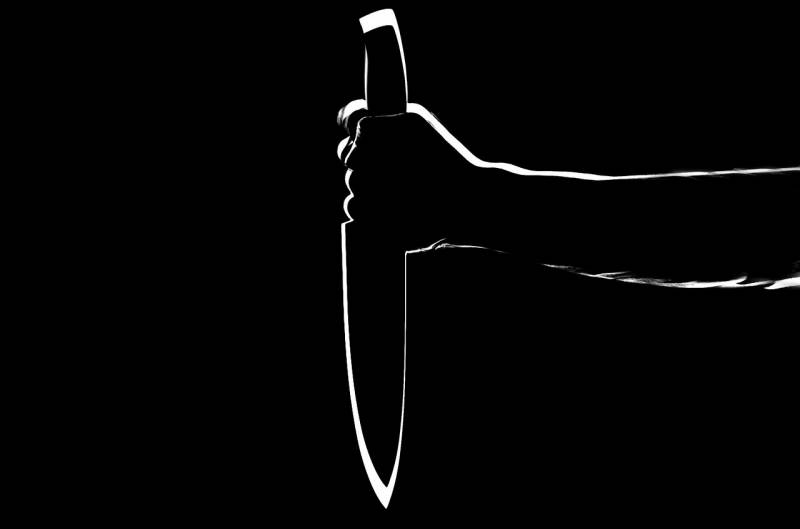
DO PSYCHOTHERAPY WITH A PSYCHOLOGIST TO LOSE WEIGHT IN PARIS 9TH
See a psychologist to lose weight
More and more, nutritionists and dietitians are realising that the difficulty in losing weight is due to psychological causes, that is, causes that can be treated in psychotherapy with a psychologist trained in psychoanalysis.
Indeed, losing weight is not only an act of willpower and telling someone who is unable to lose weight that they lack the willpower to achieve it can not only make them feel guilty, but above all can produce the opposite effect, i.e. reinforce weight gain.
The relationship to food therefore clearly illustrates the weight of unconscious desire in human behaviour and the way we eat, just as the excesses that can characterise it, testify to the gap that there can be between desire and will.
Why is it difficult to lose weight?
To illustrate this difficulty, we can rely on the concept of impulse that Freud identified at the beginning of the 20th century: we do not eat only to satisfy a need, we also eat to please ourselves!
Thus, the speaking being is not only a being of need, it is not an animal that one can train or even a machine that one can program, it is a being of pleasure and desire.
This is why programs to lose weight are most of the time insufficient when they are not accompanied by psychotherapy, with a psychologist in particular, or by a treatment that allows you to take care of your desire.
In the same way, the difficulty in losing weight in the absence of psychotherapy precisely highlights the difficulty that is encountered in its relationship to pleasure.
Not only is the relationship to desire not to be confused with the relationship to need, particularly with regard to the need to eat, but beyond this search for pleasure which polarises human desire, Freud noticed a more enigmatic tendency which is found in the symptoms: the repetition of displeasure.
In this regard, the relationship with food clearly highlights how pleasure can transform into displeasure once it exceeds a certain limit.
Moreover, the terms of everyday language testify to this excessive dimension by which pleasure shifts into what psychoanalysts recognize as a specific form of enjoyment: “stuffing oneself”, “gobbling oneself”, “stuffing oneself”, etc.
Pleasure without end or without hunger, the excess demonstrated by these terms invites us to differentiate pleasure and enjoyment to the extent that the latter can induce displeasure and suffering.
Moreover, the guilt and bodily pain that someone who has eaten too much may feel clearly indicates that we are no longer in the realm of pleasure.
This shift from pleasure to suffering is all the more significant in the long term: the bodily and organic symptoms caused by excess weight clearly illustrate the morbidity in question.
Hypertension, diabetes, cardiovascular disease, etc., aren't most general medicine consultations linked to poor diet?
Both in excess of food and in the consumption of foods harmful to health - "junk food" - the relationship to food illustrates well how medical treatment, that is to say the care of the human organism, is inseparable from psychic treatment. , or psychoanalysis.
Moreover, the doctors of antiquity had already noticed the preponderant role of mental well-being and diet in human illnesses.
Trivialized in our societies where obesity tends to become the norm, at least in certain so-called “civilised” countries, the unhealthy relationship to food is often confused with pleasure and freedom. This tendency to destroy one's body is thus minimised and confused with a tendency to have fun, to be joyful, to be "bon vivant".
But being good-natured certainly does not mean harming your health!
This confusion between pleasure and orgy seems to be linked to another confusion, that between temperance and excessive prohibition.
In other words, knowing how to deprive yourself in order to have pleasure does not mean wanting to control too much and prohibit yourself too much.
In the same way that excess in food can be confused with pleasure, excess in restriction and retention can be promoted as a form of virtue.
These two excesses ultimately tend, in their own way, to exclude pleasure. Eating to excess or depriving yourself to excess, enjoyment therefore has multiple faces.
If the orgiastic side of pleasure is much more palpable, that which hides in the fact of controlling and mastering is less easy to identify. It is precisely because it goes unnoticed that it is found in a certain number of current treatments which confuse psychic and bodily care with the illusion of mastery and control.
How many slimming diets are based on the illusion of controlling your diet, or on lists (of foods, quantities, times, exercises) that you have to follow to the letter?
But if it is not to become a new obsession , where pleasure again disappears from the equation, no slimming program can help to regulate the intimate relationship of the person to his pleasure, or to his diet.
Both in the food compulsion and in the excess of control, the relationship to the enjoyment which is expressed there is not of the order of the will. It hurts those who see themselves caught in a vicious circle from which they cannot escape.
" It's stronger than me ! », « I know it's not good but I can't do otherwise », these sentences clearly illustrate that the question of enjoyment is not about mastery and control.
It comes from unconscious causes which are revealed when we do psychotherapy , to lose weight or for something else.
Thus, doing psychotherapy with a psychologist to lose weight , in Paris 9 or elsewhere, allows you to build an ethical relationship to desire, a relationship where life can rhyme with pleasure.
And beyond the relationship to food where the excesses that prevent pleasure can be easily identified - both in excess food and in excess of control - it is the whole of the relationships of the being that can be calmed by psychotherapy and psychoanalysis . Relationship to oneself, to one's body, to one's couple, to one's friends, to one's work, the construction of an ethical relationship to one's desire has concrete consequences.
So, if you would like to know more about how psychoanalysis works or if you would like to do psychotherapy with a psychologist to lose weight in Paris 9 , do not hesitate to contact me directly.
Psychologist to lose weight and lose fat


Psychologue pour traiter l’infertilité à Paris 9
Problème de fertilité, je n'arrive pas à tomber enceinte... Psychologue pour traiter l'infertilité à Paris 9 Voici le cas clinique d'une patiente souffrant d' infertilité et comment un psychologue lui a permit d'avoir un enfant. Psychologue infertilité En savoir plusnavigate_next
Soigner les phobies d’impulsion grâce à la psychothérapie à Paris 9ème
Phobie d’impulsion définition ? Phobie d’impulsion symptômes ? Pourquoi on a des phobies d’impulsion ? Phobie d’impulsion origine ? Phobie d’impulsion et traitement médicamenteux ? Exercice TCC phobie d’impulsion ? Comment soigner les phobies d’impulsion ? Comment se libérer de ses pensées obsessionnelles ? Qui peut soigner les phobies d’impulsion ? En savoir plusnavigate_next
